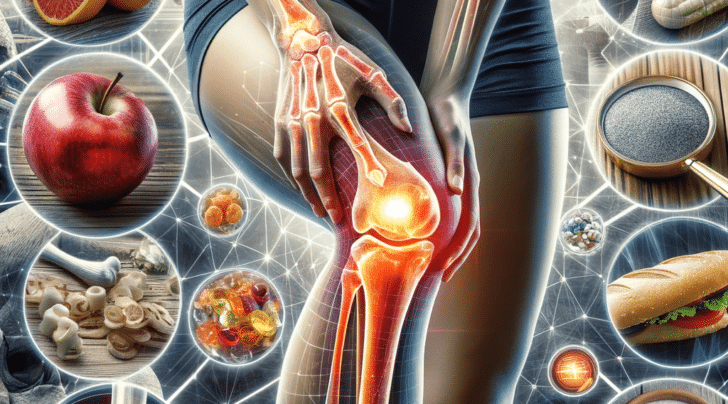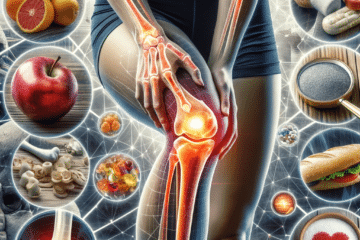
This is a guest post that I was asked to write for Sensible Medicine. You can view my original post here.
After we look at your X-rays in the office, the following few words out of our mouths could have long-lasting negative implications… after all, words can harm.
“You have bone-on-bone arthritis.” That sounds awful, right?!?
Let’s meet Pam. She is a healthy 64-year-old woman. She loves running. She’s run 15 marathons in her life and looks forward to her morning run each and every day. She eats dinner early and gets to bed by 9:30 to be ready to run as soon as the sun rises. If you know runners, you know that running completes them. Without running, they do not feel whole. Pam had an old injury in high school. But the pain went away, and she never thought about it again until now.
Osteoarthritis (OA) of the knee is a condition often misunderstood by patients and healthcare practitioners alike. Osteoarthritis leads to the gradual loss of cartilage on the ends of our bones. The traditional belief is that OA is merely a result of mechanical wear and tear— That every step you take, every squat you do somehow wears away the cartilage—like sandpaper.
This is wrong.
But this widely held belief has led to many people being given terrible advice about managing their arthritic knees and hips. The consequences of that single encounter with a healthcare provider will often adversely impact that patient and their health for the rest of their lives.
Pam usually ran 5 miles each morning. She wasn’t fast, but her trails were beautiful to observe and soak in. One morning, about an hour after her run, her knee swelled and was a little achy. She waited a week for it to resolve, but it didn’t. She scheduled an appointment to see her orthopedic doctor, who helped her with her shoulder years ago.
The cause of OA is far more complicated than we could imagine. We are incredibly complex beings. Every system seems to interact with and be affected by each other. If the health and wellness of one system is askew, there will be an impact on the other systems as well. Cartilage and the development of osteoarthritis are no different. The overall metabolic fitness of our global population is not improving. Metabolic diseases such as metabolic syndrome, fatty liver, abdominal obesity (visceral fat), insulin resistance, type 2 diabetes, and more can create havoc throughout our bodies.
Pam visited with her surgeon. Her pain was starting to improve. She had thought of running that morning, but she had an appointment and decided to keep it. Her surgeon obtained X-rays of her knee. They showed evidence of osteoarthritis. Her surgeon decided to go further. “You have bone-on-bone arthritis.” This hit Pam like a ton of bricks. Her surgeon advised her to stop running. Pam went home, despondent and worried. She googled bone-on-bone arthritis; all she saw were references to knee replacement surgery. Pam stopped running that day.
Many cases of OA are due to the biological failure of cartilage repair, which is often times closely linked to our overall metabolic health. Our metabolic health more significantly influences the onset and progression of OA than our physical activities. Granted, there are other causes of osteoarthritis, such as trauma, fractures, crystalline diseases, and more… but metabolic disease-associated osteoarthritis is becoming far more prevalent. This revelation should shift the focus from mechanical stress to the broader metabolic disease and inflammation spectrum.
We need to consider osteoarthritis as more of a biological than a mechanical issue. Research indicates that inflammatory processes associated with metabolic syndrome, obesity, and diabetes play a crucial role in the degeneration of cartilage in OA. The role of inflammatory mediators, which increase in concentration when we suffer from metabolic disease, is often held responsible as a potential cause of OA, the progression of OA, and the amount of pain you will feel due to OA.
In 2 years, Pam was now 11 pounds heavier, not nearly as active, and was taking medication for anxiety, hyperlipidemia, and hypertension. She couldn’t help but envision her bones rubbing together with every step she took.
Cartilage, unlike the simplistic wear and tear model, suggests, is a dynamic tissue that undergoes constant processes of breakdown and repair. The real problem in OA is the failure of this repair process, often exacerbated by inflammatory conditions associated with poor metabolic health. Cartilage does not possess a blood supply like almost every other tissue in our body. It derives its nutrition from the fluid in our joints. The chemical makeup of our joint fluid is directly influenced by what is circulating in our blood. Therefore, the nutrients, chemical makeup, and potentially toxic inflammatory mediators will all play a role in whether or not the cartilage will remain healthy and viable.
When we have someone in our office with osteoarthritis and an X-ray is on the computer for them to view, the subsequent two sentences we utter will have a profound impact on that patient’s life! Words can harm. As physicians, our language and advice can significantly impact our patients’ perceptions and management of their condition. Telling a patient that they have “bone on bone” X-rays or that they possess the knee of a 90-year-old is more harmful than informative. While attempting to convey the severity of the condition, these phrases can, and often do, inadvertently lead to a fear-driven cessation of all physical activities. Running does not cause arthritis to worsen. It just doesn’t. As I often tell people in my office who think that running led to the need for a knee replacement. Your running didn’t lead to your knee replacement; your running enabled you to keep your natural knee much longer than you would have otherwise.
When patients hear that their joints are severely deteriorated, they might believe the best course of action is to reduce or completely stop activities to “preserve” their knees. This belief is perhaps well-intentioned, but it is counterproductive and wrong. As mentioned earlier, OA is not primarily a result of mechanical stresses but a biological issue related to cartilage repair mechanisms and inflammation. Consequently, inactivity may worsen metabolic health, thereby increasing inflammation and exacerbating OA. The risks associated with inactivity are far more consequential than those associated with exercising.
Contrary to the notion of preserving joints through inactivity, staying active has numerous benefits for those with OA. Physical activity improves metabolic health, reducing inflammation associated with metabolic diseases, which in turn benefits cartilage health. Moreover, cartilage thrives on the cyclical loading that comes with exercise. Regular movement ensures a steady supply of nutrients to the cartilage, aids in waste removal, and stimulates the repair processes necessary for maintaining healthy joints.
Patient education is crucial. But the message matters! Words can harm. We must think more about the potential consequences of useless phrases such as bone-on-bone arthritis. Instead, as healthcare providers, we should communicate the importance of metabolic health in managing OA. We should encourage patients to stay as active as they tolerate and tell them they need to counteract their intuition that activity worsens their arthritis.
Understanding OA as a complex interplay of biological processes and metabolic health, rather than just mechanical wear and tear, opens up new avenues for treatment and management. As physicians, we must be mindful of discussing OA with our patients. Not only do we need to improve our understanding of the natural history of osteoarthritis, but we need to avoid language that promotes fear and inactivity.
On that fateful day, Pam only needed to hear that she had some arthritis, that the swelling would eventually subside, and that she could return to running as soon as she felt like it.













